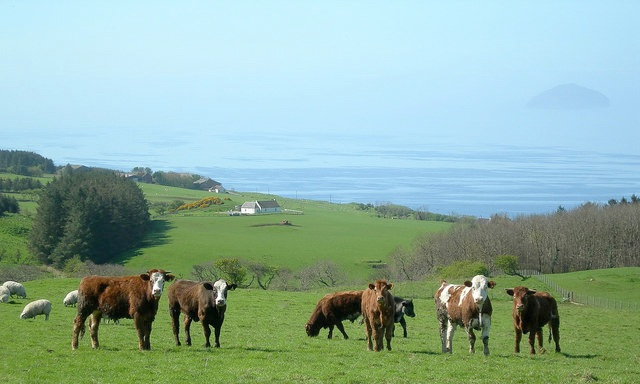
As the UK economy continues to falter, UK farmers face another challenging year brought on by adverse weather conditions, soaring costs and a weak eurozone export market.
Farmers in the UK have highlighted the importance of CAP after the industry suffered in the wettest year on record and other problems affecting farm profits, the National Farmers' Union have said.
Defra's Farm Business Income forecasts for the year ending February 2013 predict a decline in the profitability of farming across the majority of farming sectors.
Weather-impacted output coupled with increased input costs have hit farming over the last year, and these figures are the first to indicate the financial impact on farmers.
The increasing costs serve as a 'timely reminder', farmers said, that single farm payments act as a lifeline for many businessess.
UK farming businesses eligible to receive EU subsidies can opt to receive the payment in either Sterling or euros.
This is not a decision to be taken lightly as exchange rates fluctuate constantly and consequently the Sterling-euro exchange rate remains the biggest detriment on sector-wide farm income in the UK.
However as the Pound continues to fall against the euro, UK farmers may gain more from their EU subsidy by opting to take the payment in euros, but the timing of the actual currency transaction will be key.
Thomas Walsh from FC Exhcnage said: "In times of currency volatility it is vital those needing to change money – especially large sums such as EU subsidies – seek the best rates in a changing and complicated market."
"With continued uncertainty surrounding the Pound, those eligible for EU subsidies may wish to take receipt of this year’s subsidy in euros as the currency continues to rally."
"Taking payment in euros could result in significant gains – for example based on today’s EUR/GBP rate of [1.1540/0.866] on a subsidy of €200,000 will achieve £13,706.05 more than the rate set by the Rural Payments Agency in September 2012."
HSBC Head of Agriculture Allan Wilkinson said the agricultural sector needed to concentrate 'on the basics' in order to preserve margins in 2013.
Livestock producers are among the hardest hit with feed prices and an increased feed use hitting margins.
The forecasts show profitability for the pig and dairy sectors falling by 50% and 42% respectively.
For beef and sheep producers, falls of 44 per cent are predicted for lowland producers, while their uplands counterparts have fared worse with income falling by 52 per cent. Only the poultry sector remains unchanged, according to the Defra forecast.
Wilkinson warned that farm incomes are expected to plateau, which means farmers must place extra emphasis on costs of production and enterprise margins.
Recent weather events impacted on the UK cereal sector and price volatility has highlighted the need to plan effectively.
"There are no secrets to being the best – the attributes have been well documented and include a strong desire to succeed, a clear strategy, maximising the deployment of all business resources, regular benchmarking and business planning. Last but not least, a thorough understanding of your main customers is essential" Wilkinson said.
"Price volatility on both sides of the budget mean that the range in the final margin can be wider than ever, the margin for timing difference being shorter than ever."
"After recent high levels of farm incomes, this has to be the year to concentrate on the basics in order to preserve margins. Forward Planning 2013 not only allows current capital investment to be assessed prudently, it also allows those in the agriculture sector to quickly assess the changes required in order to maintain viability as market conditions change."
